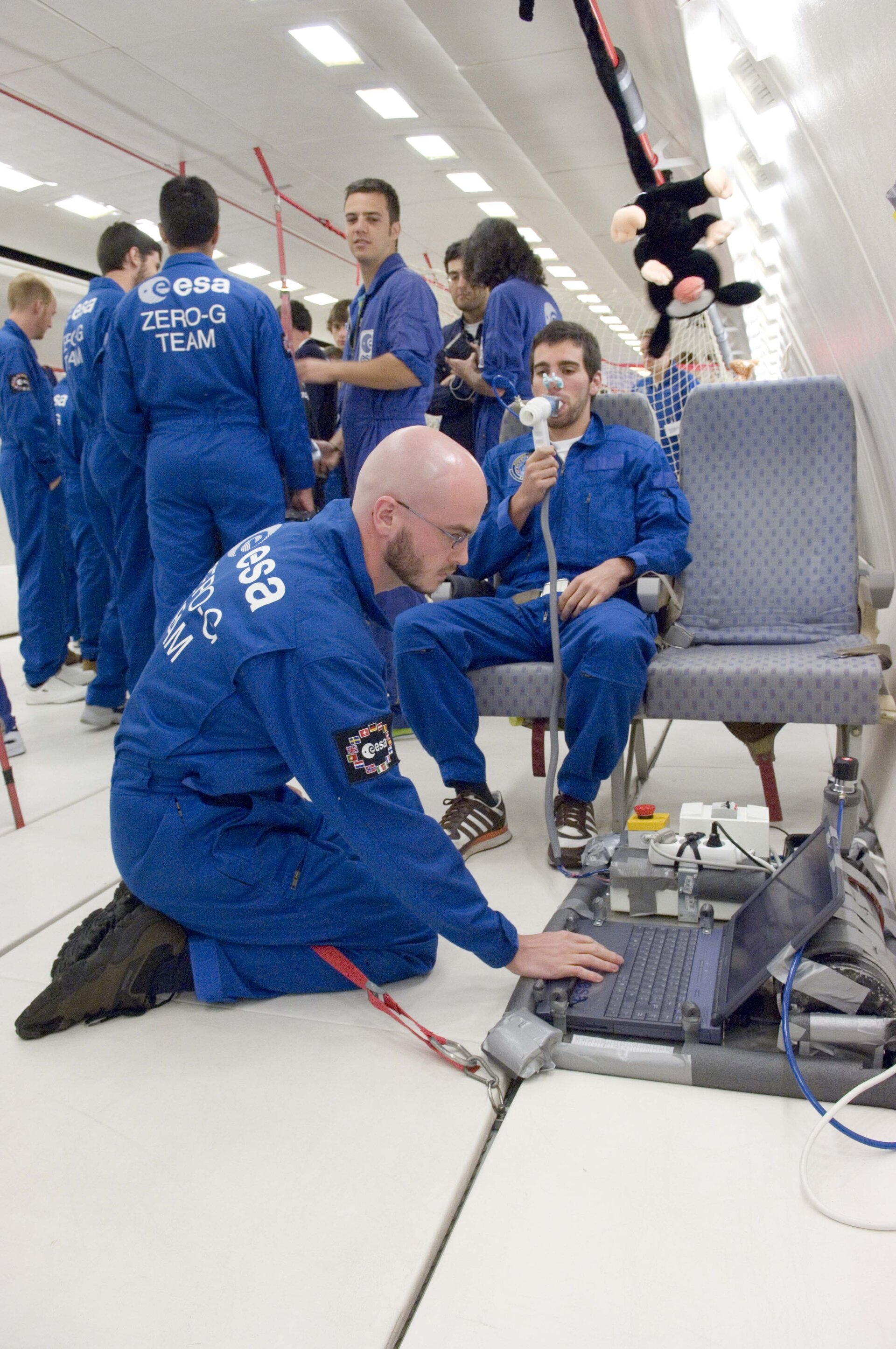12 teams selected for next stage of ESA’s ‘Fly your Thesis!’ 2011 programme
In April 2009, ESA’s Education Office launched the second call for the ‘Fly Your Thesis! – An Astronaut Experience’ programme. This exciting programme offered an opportunity for teams of university students to fly their experiments in microgravity by participating in a series of parabolic flights on the Airbus A300 Zero-G aircraft.
After the deadline for applications passed on 22 June, ESA's Education Office set up an Evaluation Board composed of experts from ELGRA (European Low Gravity Research Association), the ESA Human Spaceflight, Microgravity and Exploration Directorate, and ESA's Education Office. Out of the 25 teams that applied for the next phase of the programme, 12 were pre-selected, involving a total of more than 30 European students.
The pre-selected teams
This list summarises the names of the pre-selected teams, the title of their proposed experiment and their university:
- GRAPPA, Gravitationless accretion of protoplanetary bodies and rubble pile asteroids, University of Leicester (U.K.);
- ARID, Electrostatic self-assembly of topsoil particles to study the reorientation of water repellent organic coatings, University of Amsterdam, FNWI - IBED - Earth Sciences (Netherlands);
- QNEM & nano's on board!, Is nano's thermal diffusivity different in micro-g ?, Université Libre de Bruxelles, Microgravity Research Center, Brussels (Belgium);
- TREX Parabolic Team, Investigation of the Effectiveness of "Einstein's Teacup" Phenomenon in Microgravity Using Parabolic Flights, Luleå University of Technology, Kiruna (Sweden);
- Lark, Influence of gravity on the effects of anasthetic materials in mouse model utilizing heart rate variability measurement and analysis methods, Szent Istvan University, Faculty of Veterinary Science, Budapest (Hungary);
- GSI, Effect of microgravity and flight-related stress on radio-sensitivity, Technical University of Darmstadt (Germany);
- Team Chaos, Chaotic Dripping in Reduced Gravity, Kingston University, Faculty of Engineering (U.K.);
- Sparky Space Cells, Investigation of proposed porous and micro channel material electrodes in a low temperature proton exchange membrane Fuel Cell for Earth and Space Applications, Dublin City University, Mechanical Engineering Department (Ireland);
- MuSpace2010, Analysis of metabolic and physical behaviour of muscle models in gravity-altered environments, CRIM Lab, Scuola Superiore Sant'Anna, Pisa (Italy);
- KUL ADACS, Low Cost Attitude determination and control system, Katholieke Universiteit Leuven, Mechanical Engineering (Belgium);
- CMEFE, Micro-g experiment for liquid management device, CMEFE, Petit Lancy – GE (Switzerland);
- Supermassive B., DEEP IMPACT, Université Joseph Fourier, Grenoble (France);

The pre-selected teams are now expected to write a scientific and a technical proposal before mid November. Teams will be invited to present their project to the Evaluation Board during a dedicated workshop to be held in December. Up to four teams will be selected to further develop and perform their experiment on an ESA Microgravity Research Campaign that will take place in Bordeaux, France.





